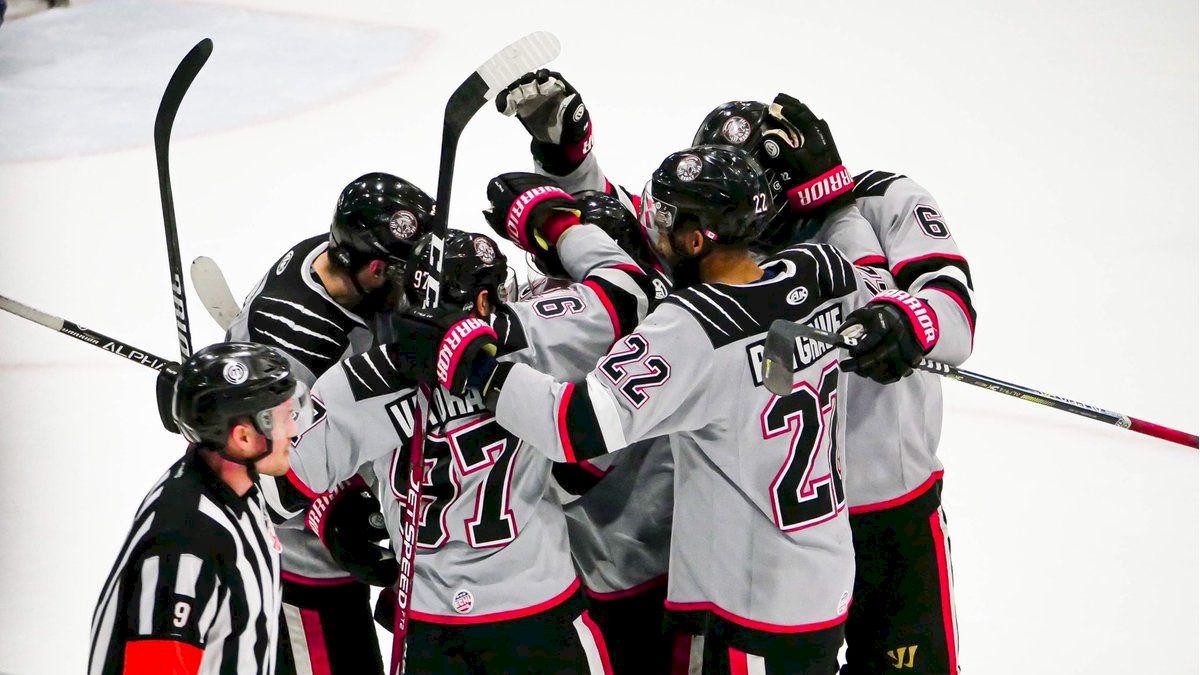Saying Goodbye To The ECHL's Brampton Beast
Saying Goodbye To The ECHL's Brampton Beast
Jordan Henry’s phone has been ringing a lot over the past week. Everyone wants to ask him about the Brampton Beast.

Jordan Henry’s phone has been ringing a lot over the past week. Everyone wants to ask him about the Brampton Beast.
Henry doesn’t mind answering those calls. The defenseman played five seasons for the Beast. The franchise was a big part of his career.
“I’m always happy to talk about Brampton,” Henry said. “I don’t want the team to fade away into the sunset quite yet.”
If nothing else, Henry had impeccable timing. He decided long before the end of the 2019-20 season that it was going to be his last. What he couldn’t have known is the Beast were going away with him.
Brampton ceased operations on Feb. 18, becoming the first ECHL team that couldn’t make it through COVID-19. The Beast opted out of this season and haven’t played in nearly a year.
Henry, who started his career in 2007-08 and played 378 games in the ECHL, decided to retire to help care for his two young sons. He found out his wife was pregnant with the couple’s second child the day before the 2020 playoffs were canceled.
The Alberta native had already played his last game at that point. He just didn’t know it.
"That part of it was a little bit tough,” Henry said. “To come to grips with that. You always think you’re going to know when it’s your last game. I really would have enjoyed those last 10 games and the playoff run. It would have been nice to savor that but I guess that’s the way she goes.”
Minor league teams don’t last forever. The ECHL is constantly reshaping with cities coming and going. The North Division, for example, has lost the Elmira Jackals, Manchester Monarchs and now Brampton in the last four years.
Every time a team folds it leaves behind players who made it their home and employees that must search for a new job.
“I really feel for all the people in the organization,” Henry said. “Not being very far removed, I’m still close with all the players I played with and the front office staff, training staff and coaches. You feel for all those people who kind of had the rug pulled out from underneath them.”
Brampton struggled at the gate. The Beast drew 2,452 fans, second-fewest to Wheeling, in their final season. The most they ever averaged in six ECHL seasons was 3,106. Capacity at the CAA Centre is about 5,000.
Like many ECHL teams, Brampton had a small, hardcore following. A collection of people who adored the Beast and will miss them greatly.
“We obviously knew that Brampton had difficulty with attendance at times,” Henry said. “But that core group was extremely supportive and extremely loyal. Rain or shine, winning or losing, that group was always there. They were always coming out to the events.”
Brampton was a popular landing spot for players because it’s Ontario location was close to where many called home. It gave them a chance to extend their careers while starting the transition to retirement life. They could sleep in their own beds, plan for the future and play pro hockey.
David Pacan and David Vallorani were two examples of Ontario natives who starred for Brampton. That opportunity is now lost.
When the pandemic hit, there was speculation that some teams might not make it to the other side. That proved true for at least one. Eleven other teams didn’t play this season but still plan to return in October.
Henry ended his career with a notable distinction. He was the captain for Brampton’s final team.
“It’s just another casualty of this situation that has been going on for the better part of a year,” he said. “There’s a lot of people in all facets of life who have seen their lives drastically changed because of COVID. This is another unfortunate event.”
Jason Guarente has covered the Reading Royals and ECHL for 10 seasons. He can be found on Twitter @JasonGuarente.